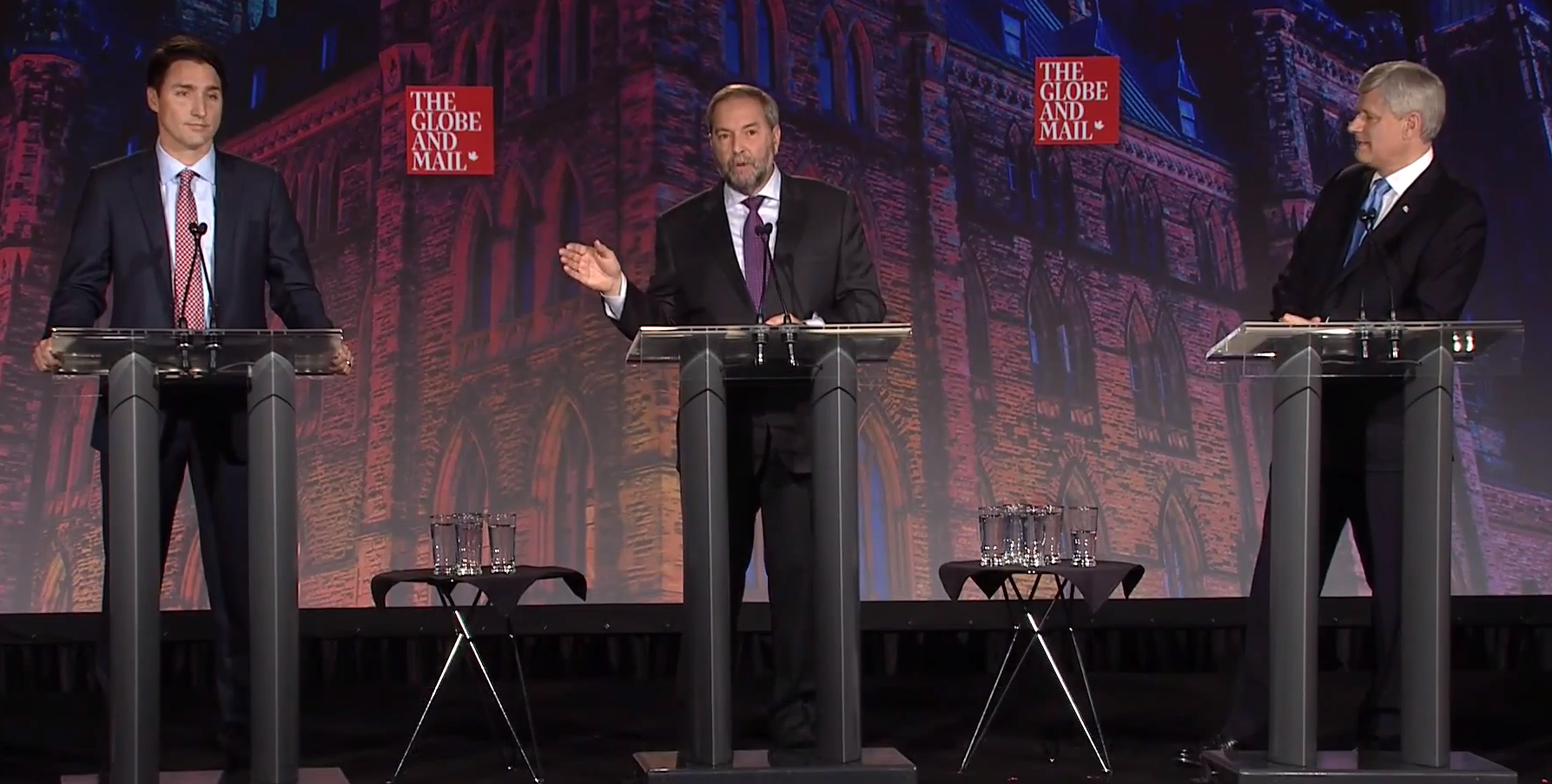Want to see an election campaign fact rich and spin poor? Chip in to keep our fact check blog up to date.
The second leaders debate of the election aired last night. It was predictable and frankly, boring. Part of the predictability was that the leaders simply re-hashed the same talking points that have been repeated throughout the campaign period already. Despite how broad a topic like “the economy” should be, the three main party leaders did not stray from their very narrow interpretations of what the economy is.
Because the talking points have not changed too much, many of the arguments made by Harper, Trudeau or Mulcair that are demonstrably false have already been fact-checked by rabble.ca.
With debate prep and recovery occupying each of the parties, today’s fact-check is a clip show version of the regular feature, based on quotes pulled from the transcript of the Globe and Mail debate.
Stephen Harper:
“Through it all, the Canadian economy has managed to create a large number of jobs, a better record than anyone in the G7, 1.3 million net new jobs since the end of the global financial crisis, most of them full time in the private sector in good-wage industries.”
Harper’s job numbers need to be taken with a grain of salt. Precarious jobs have certainly been on the rise, but so too have independent contractors, especially as tax incentives have changed to encourage people to work independently.
The CCPA’s Armine Yalnizyan examined this exact claim back in August. Her conclusion: Harper’s claim isn’t quite right.
Verdict:
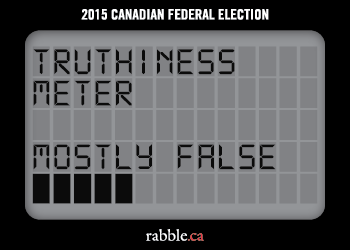
Thomas Mulcair:
“We want to drop the taxes of Canada’s small- and medium-sized businesses because they create 80 per cent of new jobs in this country.”
Yesterday, I examined the link between small and medium-sized businesses and job creation. They do create the majority of new jobs but there is no concrete proof that lower taxes encourage job creation.
Verdict:
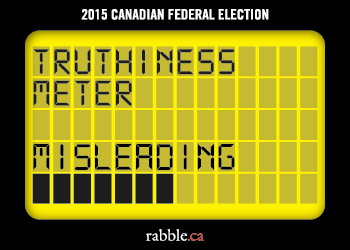
Stephen Harper
“They propose hikes to payroll taxes, to CPP particularly and also employment insurance, that are ten times bigger than the tax cuts they are promising small business….That’s why Canadian Federation of Independent Business and other experts today said that Mr. Mulcair’s tax increases will cost at least 250,000 jobs.”
In the same piece, I demonstrated that one, CPP contributions are not taxes (and both other party leaders made this point in their responses to Harper during the debate); and two, the numbers they cite here are dubious, at best. Also, the NDP has not said by how much they would increase CPP or EI contributions. They’re proposing to reduce taxes by two per cent. Mulcair has not promised to increase payroll taxes by 20 per cent, contrary to Harper’s claim.
Verdict:
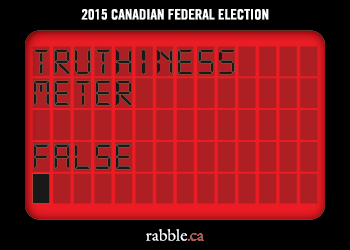
Justin Trudeau
“Mr. Mulcair, I have spoken to an awful lot of Canadians earning the minimum wage. They work in coffee shops, they work in grocery checkout lines and you’re giving them false hope by talking about a national minimum wage. You are promising them a national minimum wage….You pretend this national minimum wage is a significant thing. Well it’s not going to help 99 per cent of people.”
Trudeau is doing two things here: he’s over-reaching in his interpretation of what Mulcair is saying and also downplaying the numbers (and effect) that an increased federal minimum wage will have. He did this during the last televised debate too, and it was corrected by observers. One year ago, rabble’s parliamentary correspondent Karl Nerenberg reminded readers that the Liberals abolished the federal minimum wage in 1996.
Verdict:

Stephen Harper:
“Workers and employers, small employers, do not want these tax hikes. And when you say they’re not tax hikes, they’re coming right out of the paycheques, a thousand dollars for the Liberal Party proposal out of someone making $60,000 a year. It comes out of the mortgage, comes out of planning for education, this comes out of putting food on the table.”
Actually, polling suggests that workers do want to see CPP expanded. It’s not surprising, considering the state of poverty among seniors. And, unlike taxes, CPP payments are essentially a set-aside that people can access when they’ve retired. Harper is probably correct in saying that employers do not want to pay more for CPP as it cuts into their profits, which are at record highs.
Verdict:

Stephen Harper:
“You know, this is the same story we had in Alberta when the NDP came to office. We’d somehow fix our problems through raising taxes. And now what have we seen? Now I know trades people who are now getting higher individual tax bills. We see people getting layoffs because their employers are paying higher taxes.”
Anyone with a sense of time will find Harper’s characterization of the NDP government of Rachel Notley, cute. They have yet to release their first budget and are still sorting through the financial legacy of the Progressive Conservatives. Layoffs are more likely tied to the downturn in the price of oil than tax increases. And who should be blamed for hedging all of Canada’s economic bets on oil? Not the NDP.
Verdict:
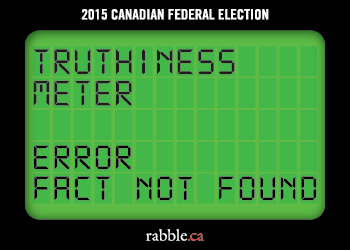
Stephen Harper
“First of all, the fact of the matter we have not taken away health care from immigrants and refugees.”
No, the Conservatives only tried to. I guess there’s a difference.
Verdict:
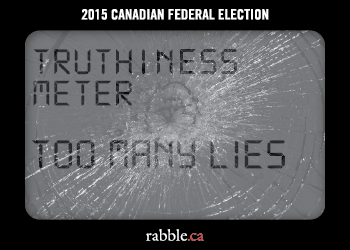
Want to see an election campaign fact rich and spin poor? Chip in to keep our fact check blog up to date.

